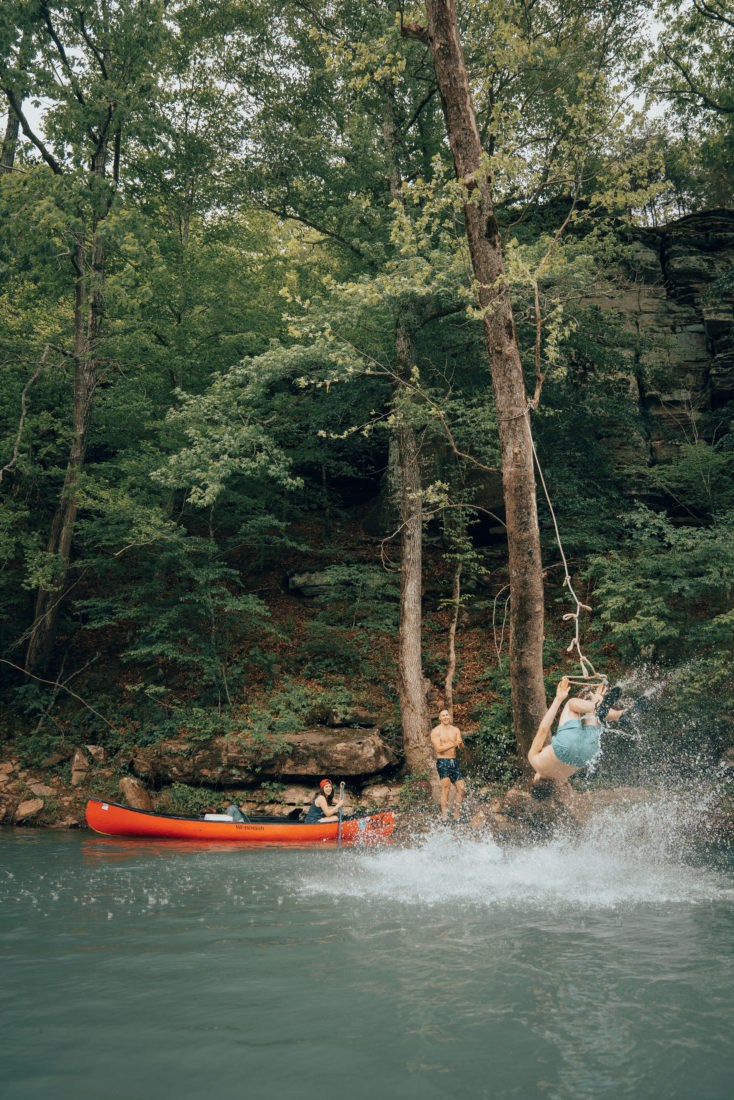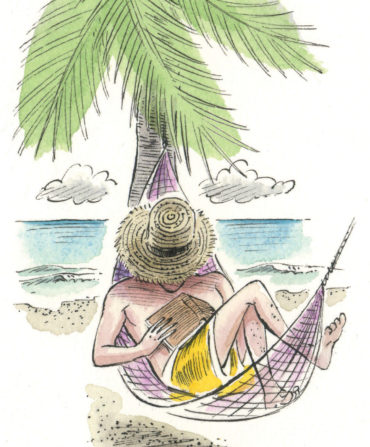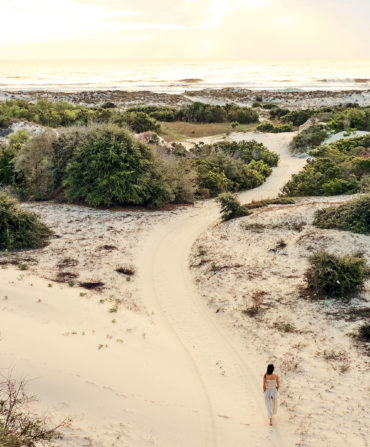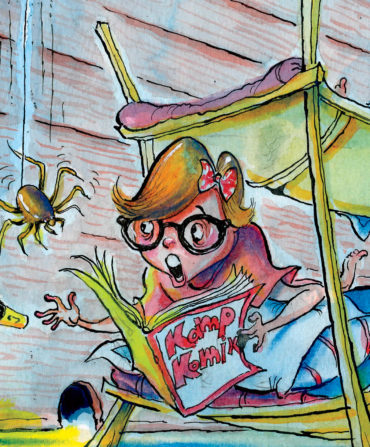Time was, summer was this: You woke, ate some fresh biscuits with molasses, and walked outside, and the South had laid all the bright wonder and possibility in the dew at your feet. Whether you hunted arrowheads poised on their little pedestals of red dirt after a rain, or kept a wary eye on a copperhead as you stole wild blackberries from the bushes over its lair, or fought a yellowfin tuna to the boat forty miles out in the Gulf, or just stood in a creek gigging frogs and trapping crawfish, it seemed as if time had been bent and hammered in on itself like so much Damascus steel, so that these easy doings could, theoretically, curl on forever. If you spent your day lollygagging down on the river after some bream, you could always pick the peaches for the cobbler tomorrow.
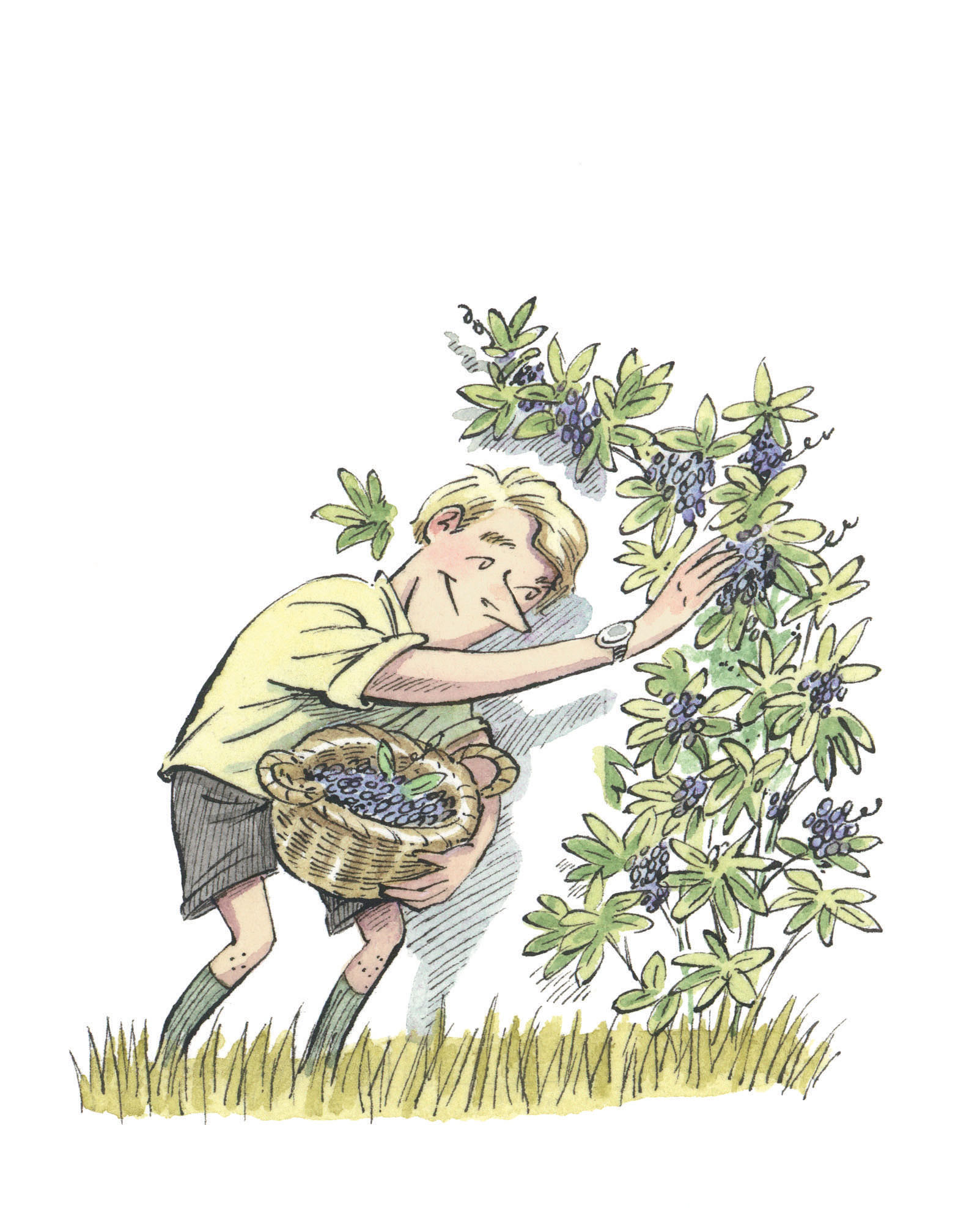
Gary Hovland
Summer spreads its big, comic, oddly magnetic lie of languor and immortality pretty much anywhere it lands, but in the South the deception is more convincing because the season is so fecund and splashy—headlong to the hills, headlong to the river and the sea. The question of an end to things doesn’t ever get asked until the cotton comes in.
These days, it’s axiomatic that we have to stage our summer play more along the lines of a jailbreak, because the unfettered liberties of youth are never long with us. A real, grown-up Monday usually waits in ambush on the other side of the fun things, and if you somehow manage to elude that, then Tuesday will be right there nipping at your butt. On the bright side, the South’s natural bounty will support your bid for summer freedom.
Put another way, if you cannot squeeze a sufficiency of restoration out of a weekend of yanking literally every club out of your bag to match the extremities of Pinehurst No. 2, then you can certainly do it by grinding in a jib sheet as you come about in a stiff westerly off Bermuda’s Sinky Bay, or by wading your fly rod out into a dawn tide to sting the tailing bonefish off the beach at Cheeca. There is no narrative of immortality in summer because immortality doesn’t exist. What does exist aplenty in the South are the fine old methods of attack. Boats help. Aggressively going to get the fun helps. It’s called recreation for a reason, as in, to re-create something of oneself.
It’s one of the more endearing customs that the massive engines of a Southern summer are run on marching orders as if for a grand battalion, approximately in these Napoleonic tones: Here are the coolers with the fifteen pounds of 41/50 shrimp to be deveined for the remoulade, so snap to, young man. For the mathematically minded, that would be 750 shrimp, worst case, 700 if you are lucky. Which I have done. Same deal with the ice cream—the job is just to get out the bag of rock salt, and keep grinding.
The colonels in chief of the army’s cookouts and barbecues and garden parties for six to six hundred are, inevitably, the mommas. My redoubtable mother, Sara Holman Vaughn, was the architect of our summers and all their parties, houses, boats, trailers, rivers, beaches, and food. It was her aunt Mabel and uncle Herbert who had the dairy farm at Fairhope and the rambling, weathered house with its big screened porch and its dock on the bay. Her childhood refuge was the Gulf, so she worked to make a gift of it to my brothers and me.
The Bon Secour River is a charming brackish estuarine stream southeast of Fairhope. With Bon Secour Bay and the Gulf at their immediate disposal, the good people of the river, my mother very much included, like to fish. Thus it wasn’t out of the ordinary for her neighbor across the river to spend a morning preparing his boat for the Gulf, after which he thought he’d refresh with a discreet skinny-dip. On cue, a prowling gator chose the moment to nose between him and his dock. Channeling his inner Michael Phelps, he performed what my mother described as a “lively” freestyle across the river to her dock. She got him a towel, they had a laugh, and she ferried him back in her skiff. Naked and adrenalized on Momma’s dock, he got what the eighteenth-century French founding fathers clearly hoped for in naming this part of Alabama, the human reward of bon secour, or good help.
Because it’s such a hot, heedless charivari, summer generates more than its share of fake heroics: a blistering service return on a break point, a dastardly croquet winner rocketing your opponent’s ball off the pitch, or, however unplanned, a frisky fifty-meter crawl in a gator-infested backwater. Jailbirds who have recently broken free of their daily travails tend to engage in athletic endeavors such as that, come summer in the South.
>Looking for more Southern getaways? See our favorite classic summer weekends.


